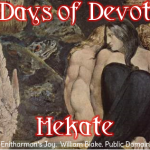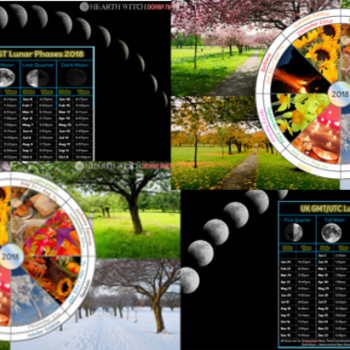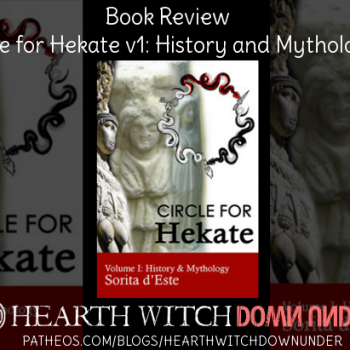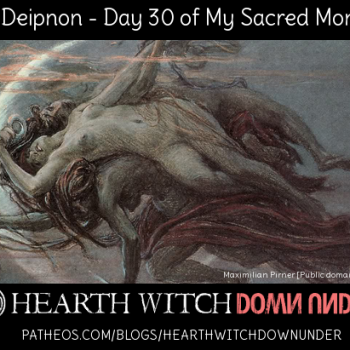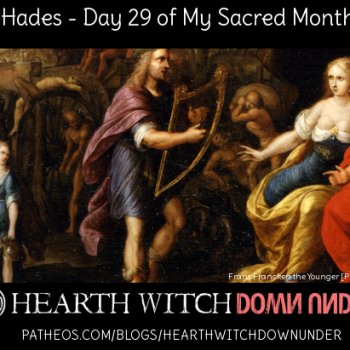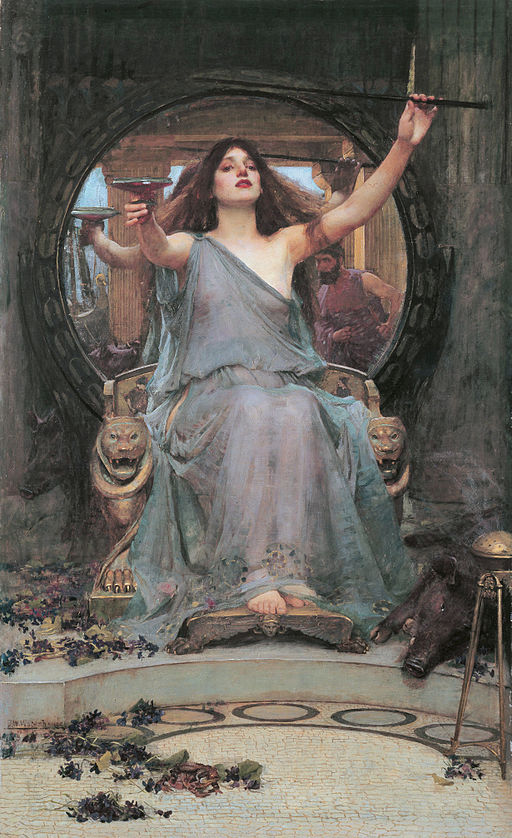
Circe and Medea
In the Family Members post we looked a little bit at Hekate being the mother of both Circe and Medea. Outside of this though, both sorceresses called on Hekate in use of their magic. Medea was indeed a Priestess of Hekate and Hekate plays a role in the myths of Jason and Medea. Her role in Circes myths is a bit smaller, but She is there nonetheless.
No matter, when one speaks of Circe or Medea, it is a natural thing to think of Hekate as well. At least it is for me anyway, so much so that my eldest daughters middle name is Medea!
Ghosts & Daimons
As we’ve already seen, Hekate is a psychopomp, a Goddess of the Underworld and She leads the ghosts of the dead out of the Underworld at night. Part of the Deipnon meal that we offer Her each dark moon is meant to be for the dead that She leads, as well as Herself, and this is part of the reason we are not meant to look back towards the crossroads or place we leave our Deipnon offering. Because if we do, we may glimpse that which we should not (the dead) and lose our minds.
It is said by some that when you hear dogs barking at night, this is a sign that Hekate is abroad with the dead.
Hekate is also said to lead daimons, send them out into the world and all of that scary sounding stuff. This is somewhat of a misinterpretation of the word ‘daimon’ – they are not demons, in the modern Christianised sense, but minor deities themselves. They can be “good” or “bad” either way – the Agathos Daimon for example is an entity that can bring us luck, fortune, riches and keep our home safe (though it is not one that Hekate leads). So if Hekate does lead and send out some daimons, this does not automatically mean She is sending the ravening horde to slaughter us all.
Others
This post is getting a bit long, so I think I will keep the rest short and sweet and maybe a little bit missing.
Lamiae and Empusae – These are similar to the better known succubus and are said to be in Hekates retinue, some think She is their mother.
Hekabe/Hecuba – Was turned into a black dog by the Gods after being stoned to death and became Hekates familiar.
Galinthias – A woman who tricked the Moirae and Eleithyia so that Alkmene could birth Herakles with ease. As a punishment for this trickery she was turned into a polecat, Hekate felt sorry for her and made her a sacred animal of Hers. A witch named Gale is also thought to have been treated in the same manner, though for a different reason. It is possible they both suffered the same fate, or perhaps they are same person or maybe they were confused with each other for some reason – but I am not sure either way.
There are more I could mention, but I think most of those are best saved for another upcoming post, day 17 I believe it will be.
30 Days of Deity Devotion
1 – A basic introduction of the deity
2 – How did you become first aware of this deity?
3 – Symbols and icons of this deity
4 – A favourite myth or myths of this deity
5 – Members of the family – genealogical connections
6 – Other related deities and entities associated with this deity
7 – Names and epithets
8 – Variations on this deity (aspects, regional forms, etc.)
9 & 27 – Common mistakes and worst misconceptions about this deity
10 – Offerings – historical and UPG
11 – Festivals, days, and times sacred to this deity
12 – Places associated with this deity and their worship
13 – What modern cultural issues are closest to this deity’s heart?
14 – Has worship of this deity changed in modern times?
15 – Any mundane practices that are associated with this deity?
16 – How do you think this deity represents the values of their pantheon and cultural origins?
17 – How does this deity relate to other gods and other pantheons?
18 – How does this deity stand in terms of gender and sexuality? (historical and/or UPG)
19 – What quality or qualities of this god do you most admire? And find the most troubling?
20 & 21 – Art and music that reminds you of this deity
22 – A quote, a poem, or piece of writing that you think this deity resonates strongly with
23 – Your own composition – a piece of writing about or for this deity
24 & 25 – A time when this deity has helped you, and refused to help
26 – How has your relationship with this deity changed over time?
28 – Something you wish you knew about this deity but don’t currently
29 – Any interesting or unusual UPG to share?
30 – Any suggestions for others just starting to learn about this deity?

